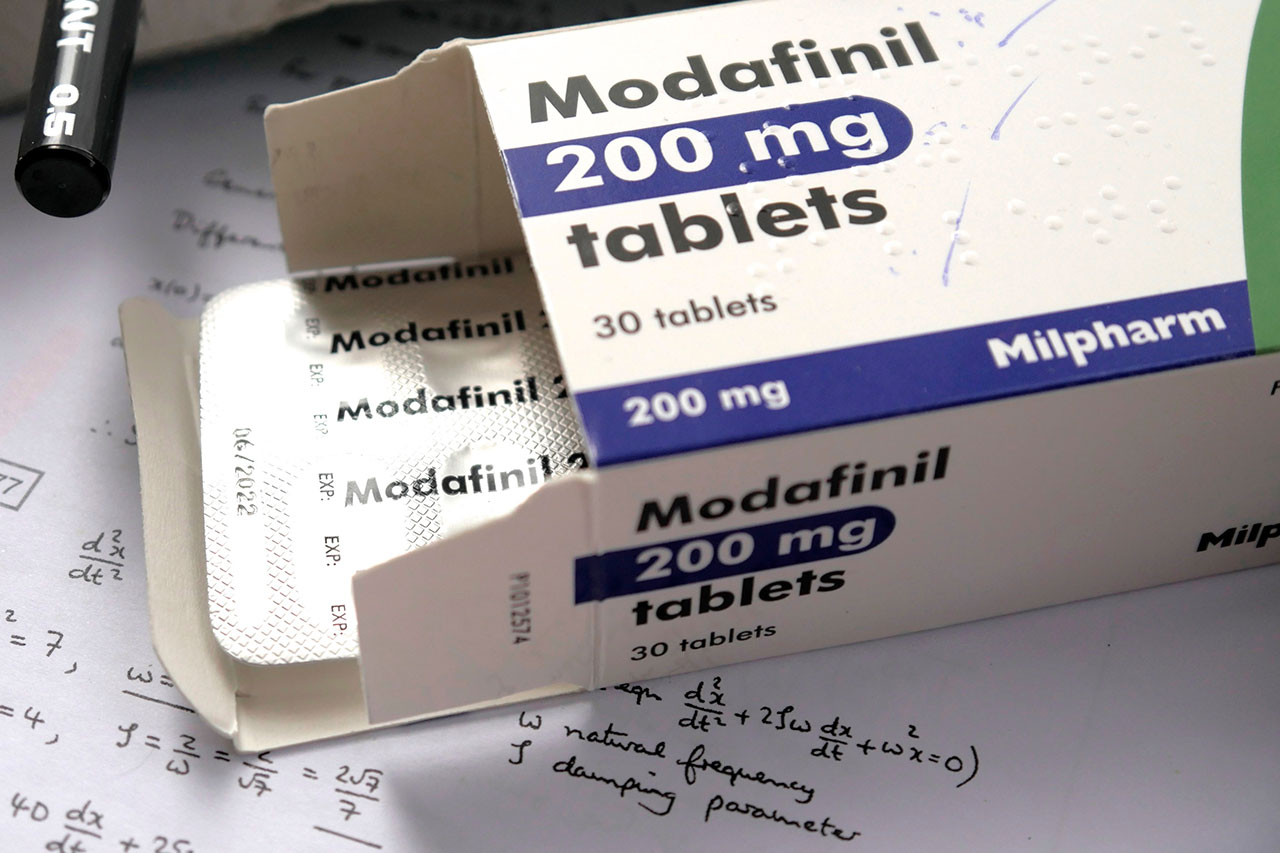
Is Provigil Addictive?
December 7, 2021
How Long Does Focalin Stay In Your System?
December 29, 2021
Is Provigil Addictive?
December 7, 2021
How Long Does Focalin Stay In Your System?
December 29, 2021
Surrender in Recovery
The definition of surrender is to cease resistance to someone or something and submit to its authority. For someone who’s experienced drug or alcohol addiction, the idea of surrendering to something isn’t a foreign concept. As someone in active addiction, you may have surrendered time and time again to drugs and alcohol, relinquishing the control you didn’t think you’d ever regain. But what does it mean to surrender in recovery? Today we’re going to talk about surrender in addiction recovery and ways you can do this in your own journey.
Why Is Surrender in Recovery Important?
When we think about surrender in the context of active addiction, it’s clear that substance abuse forces us to surrender our thoughts, actions, relationships, responsibilities, and dreams. Everything that we hold near and dear is offered in complete submission to drugs and alcohol.
Another way to view active addiction in terms of surrendering is that it “hijacks” the mind, forcing us to relinquish all control. When our bodies and minds become so accustomed to a particular substance, we no longer have control over ourselves.
Fortunately, this doesn’t always have to be the case. The application of surrender can change when someone with a drug or alcohol addiction chooses to receive treatment and commit to sobriety.
But what does surrender mean when you’re sober? In 12 step programs, such as Alcoholics Anonymous (AA) and Narcotics Anonymous (NA), surrendering in sobriety means relinquishing control to a higher power. Several of the 12 steps – step three and step seven to be exact – focus on surrender.
Surrendering also involves letting go of our ego. This is the part of us that is consumed with ourselves, our wants, needs, and desires. When we surrender in sobriety, we let go of that desire to control everything and the desire to satisfy ourselves at all costs.
Additionally, surrender is not an indication of weakness. Nobody likes to give up power in this world, which is why so many people view surrender as giving up.
When people with addictions surrender to a higher power, whether that be God or someone else, it’s a sign that they’re hopeful of the outcome. For them, it’s not so much giving up, as it is, “I tried, I couldn’t, but maybe you can help me.”
When we finally give over a difficult task to someone else who we know can assist, the stress and pressure to stay strong or maintain our willpower is alleviated. We can finally breathe, acknowledge the areas we need help in, and begin to heal.
Especially when it comes to addicts who only surrender once they’ve hit rock bottom, at this point, they’re faced with a life or death decision - either surrender to someone who can help you recover or give your life over to drugs or alcohol.
Ways to Surrender in Addiction Recovery
As a faith-based inpatient rehab, our programs encourage patients to surrender to God or another Higher Power. We believe that relinquishing control not only has its physical benefits for recovery but spiritual benefits, as well.
When you start surrendering self will in recovery, it will be difficult at first. It’s normal to want full control over everything, but considering that your willpower has been impacted by addiction, asking for help is important in staying sober. Below are some tips on how to surrender in addiction recovery and learn how to embrace it.
Notice When and Why You Want Control
The source of our not wanting to surrender is our desire to stay in control. Surrender isn’t a one-time thing in sobriety but rather a decision you have to make every time you come across a tempting situation.
With that said, you will come across plenty of situations in which you want control. While it’s important to gain authority in areas of your life, such as your finances or your ability to walk away from tempting situations, you won’t have this opportunity in every situation in life.
Sometimes we have to surrender in difficult moments where control is out of reach, and we must learn new ways to cope. You won’t get stronger without some sort of resistance, so take notes in moments where you’re frustrated or overwhelmed with the desire to take the reins for the future.
What made you feel this way? When do you feel this way the most? Understanding this about yourself will help you adjust and make surrender a more consistent goal.
Accept Yourself
At its core, surrender is rigorous honesty that forces us to acknowledge things that we’d rather forget. Self-acceptance goes hand-in-hand with this concept, as it requires us to acknowledge things we’ve done that we aren’t proud of, as well as our weaknesses.
Remember, addiction recovery is not about testing your willpower but rather finding healthy ways to abstain from drugs and alcohol. Self-acceptance forces you to acknowledge what you need help with, and surrender invites you to ask for help.
In What Way Does Surrender Help Individuals Connect To God And Activate His Power On Their Behalf?
Surrender to God is much more than giving up control; it's fundamentally about trust and reliance on divine guidance rather than our own self-sufficiency. This act of surrender not only fosters a deeper connection with God but also activates His power in our lives in profound ways. Here’s how:
1. Embracing a Mindset of Dependence- Surrendering to God means recognizing our human limitations and vulnerabilities, much like a child who naively attempts challenging tasks unsuited for their capabilities. Acknowledging that we can't tackle life's "highways" on our own is the first step towards dependence on God's strength and capabilities.
2. Waiting for Divine Leadership - Just as a soldier awaits commands, surrender involves patiently waiting for God's direction. This stance prevents us from rushing ahead with our plans and allows God’s strategic and perfect plans to unfold in our lives.
3. Activation of God’s Power- In sincere surrender, there's a pivotal shift from our efforts to God’s power. As we stop trying to pedal the tricycle along the highway of our challenges and instead let God take over, His grace becomes the vehicle that moves us forward. The divine statement from 2 Corinthians 12:9, "My grace is sufficient for you, for my power is made perfect in weakness," encapsulates this beautifully.
4. Building a Trust-Based Relationship - True connection with God is akin to plugging into a source of power — it doesn’t rely on our actions but on our willingness to trust and stay connected. This forms a relationship that isn't based on religious performance but on genuine faith and reliance.
5. Witnessing Transformative Grace - With surrender, as we hand over our struggles and weaknesses to God, we witness a transformation where His grace not only covers our deficits but empowers us remarkably. This process unveils a new perspective where our weaknesses become areas where God’s strength is most evident, heralding a journey of personal growth and freedom. In conclusion, surrender is less about giving up and more about gaining—clarity, hope, strength, and a dynamic relationship with God. As we learn to surrender, we activate God's power in our lives, leading us to real and lasting solutions that align with His gracious will and purpose.
How Can One Understand Addiction And Its Compulsive Tendencies?
To truly grasp the nature of addiction and its compulsive behaviors, it's essential to recognize the overwhelming force it represents. Addiction often begins innocuously — as a source of pleasure or a temporary escape from pain. However, this initial relief or enjoyment quickly escalates into an imperative need that dictates the addict's actions.
The Powerlessness Over Addiction
One fundamental aspect of understanding addiction is acknowledging the power imbalance. The substance or behavior that an individual is addicted to often starts as a controlled choice but soon spirals into a controlling necessity. The addict's life becomes centered around obtaining and engaging with the source of addiction, regardless of the consequences.
The Dynamics of Control
It is a common misconception that addicts can overcome their dependencies through sheer willpower or the right influence from lovedeg ones. This perspective can lead to significant frustration when efforts to help do not yield expected results. Realizing that addiction is a potent force that can dwarf individual efforts is a crucial step in understanding its grip.
The Path to Understanding
Acceptance plays a pivotal role. Rather than pushing for change through direct control, acknowledging that you cannot manage or curb someone else’s addiction is key. This surrender isn't about giving up; it's about accepting the reality of the situation and potentially seeking professional help or support groups that can offer effective intervention strategies.
Compulsive Behaviors and Their Impact
As addiction progresses, the compulsive behaviors associated with it can become bewildering to friends and family. The addict may engage in actions that seem completely out of character or self-destructive, driven by the addiction’s demand for satisfaction. Recognizing these behaviors as symptoms of the addiction itself can aid in developing a more compassionate and supportive approach to helping the addict.
Understanding addiction and its compulsive tendencies involves a mix of empathy, acceptance, and practical action. It's about seeing beyond the individual's actions and recognizing the deeper struggle they are facing. This approach can pave the way for more effective support and, ultimately, a hopeful journey towards recovery.
How Can Finding Quietness And Stillness Internally Aid In Surrender And Connecting With God?
Finding inner quietness and stillness is essential for surrendering and connecting deeply with God. In today's world, where each day may present a new set of challenges and dramas, the internal noise can become overwhelming. By actively seeking stillness, you create an opportunity to step away from daily busyness and personal efforts that often distract from spiritual growth.
Establishing a private sanctuary, a place where external disturbances are minimized, can facilitate this inward journey. In such settings, you are more likely to experience a profound connection with God. This is because in quietness, you place yourself in a receptive state where trust and faith can flourish, thereby allowing you to tap into divine strength.
The Bible supports this approach, emphasizing that salvation comes from returning to God and resting in Him. True strength, it suggests, arises out of quiet confidence rather than relentless activity. Therefore, internal stillness not only contributes to surrendering but also strengthens one's faith and connection to God.
The Takeaway
In the end, you can only be as honest with your Higher Power and others as you are with yourself. Surrender requires complete transparency, which is also a cornerstone of the 12 step method.
When you begin experiencing life through the lens of something greater and stronger than yourself, you understand that your powerlessness started even before addiction took hold. When you accept this, you can then begin to attack the root causes of the problem.
Surrendering coping mechanisms that don’t work, old habits that don’t benefit you, and false beliefs that lead you nowhere can feel like a loss at first. With loss often comes grief, and the beginnings of surrender can feel like a period of mourning.
But in the end, surrender can ultimately lead you to joy and freedom when you realize that you’re finally acknowledging and accepting something that you’ve known all along but were too afraid to face.
How can individuals seek services for addiction treatment and recovery at Banyan's Faith in Recovery?
Explore Our Comprehensive Treatment Options
At Banyan's Faith in Recovery, we offer a range of services to support your journey to recovery. Whether you are battling addiction yourself or helping a loved one, we provide tailored solutions including:
- Treatment Services: Specialized programs to address various aspects of addiction.
- Co-Occurring Services: Integrated treatment for clients with dual diagnoses.
- Codependence Treatment: Focused care for individuals dealing with codependency issues.
- Codependence Resources: Educational tools and support for overcoming codependency.
Contact Us To start your recovery journey, you can easily reach out to us, call us today at 888-280-4763
Note: We respect your privacy; hence, the phone field mentioned is solely for validation purposes to aid in accurately handling your requests and ensuring the legitimacy of inquiries.
At Banyan's Faith in Recovery, we are dedicated to providing a path to healing and renewal in a nurturing and supportive environment. We look forward to helping you or your loved one reclaim a new, vibrant life free from addiction. If you or a loved one needs help recovering from drug or alcohol abuse, our Christian recovery center for addiction can help. We address the physical, mental, and social impact of substance abuse by helping patients at every step of their recovery.
Faith in Recovery offers a multitude of faith-based recovery programs that are aimed at assisting patients in healing in every area of their lives, from medically monitored detox for withdrawals to alumni support for a smooth transition to a sober lifestyle.
For more information about our onsite and Christian telehealth rehabilitation, call us today at 888-280-4763.
Related Reading:
Best Daily Devotionals for People in Addiction Recovery
Words of Encouragement for Someone in Recovery

